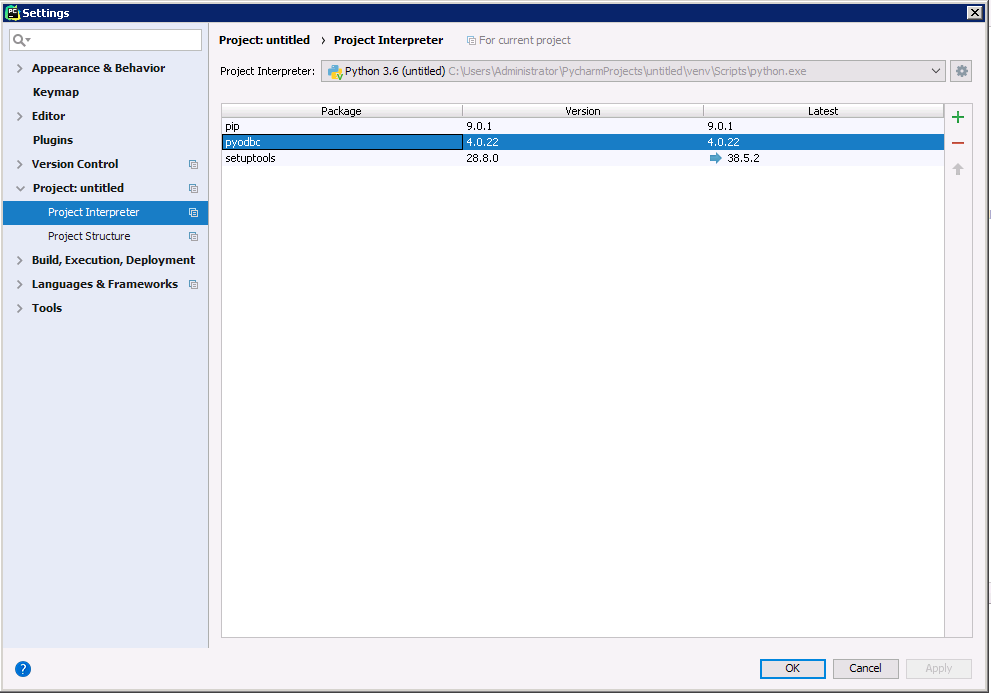Discover how a bimodal integration strategy can address the major data management challenges facing your organization today.
Get the Report →Using the CData ODBC Driver for Excel in PyCharm
Connect to Excel as an ODBC data source in PyCharm using the CData ODBC Driver for Excel.
The CData ODBC Drivers can be used in any environment that supports loading an ODBC Driver. In this tutorial we will explore using the CData ODBC Driver for Excel from within PyCharm. Included are steps for adding the CData ODBC Driver as a data source, as well as basic PyCharm code to query the data source and display results.
To begin, this tutorial will assume that you have already installed the CData ODBC Driver for Excel as well as PyCharm.
Add Pyodbc to the Project
Follow the steps below to add the pyodbc module to your project.
- Click File -> Settings to open the project settings window.
- Click Project Interpreter from the Project: YourProjectName menu.
- To add pyodbc, click the + button and enter pyodbc.
- Click Install Package to install pyodbc.

Connect to Excel
You can now connect with an ODBC connection string or a DSN. See the Getting Started section in the CData driver documentation for a guide to creating a DSN on your OS.
The ExcelFile, under the Authentication section, must be set to a valid Excel File.
Below is the syntax for a DSN:
[CData Excel Source]
Driver = CData ODBC Driver for Excel
Description = My Description
Excel File = 'C:/MyExcelWorkbooks/SampleWorkbook.xlsx'
Execute SQL to Excel
Instantiate a Cursor and use the execute method of the Cursor class to execute any SQL statement.
import pyodbc
cnxn = pyodbc.connect('DRIVER={CData ODBC Driver for Excel};Excel File = 'C:/MyExcelWorkbooks/SampleWorkbook.xlsx';')
cursor = cnxn.cursor()
cursor.execute("SELECT Name, Revenue FROM Sheet WHERE Name = 'Bob'")
rows = cursor.fetchall()
for row in rows:
print(row.Name, row.Revenue)
After connecting to Excel in PyCharm using the CData ODBC Driver, you will be able to build Python apps with access to Excel data as if it were a standard database. If you have any questions, comments, or feedback regarding this tutorial, please contact us at [email protected].





